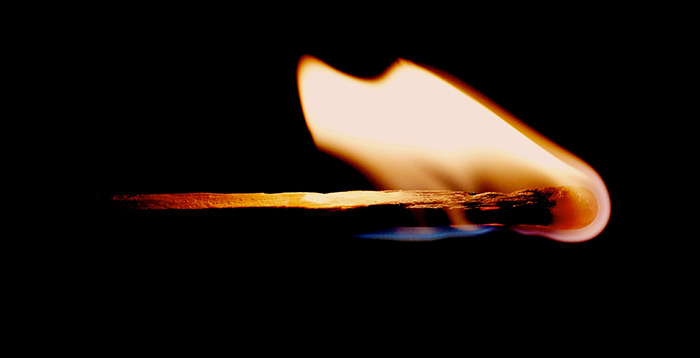Natural Causes?
Forest fires and wildfires happen all the time – in fact, more than ever in today’s warmer global climate. Sometimes, a spark from a passing train on a rural line can start a devastating wildfire on parched, tinder-dry land. In other cases, just the heat of the sun beating down on the right organic material can be enough. A bolt of lightning striking dry ground with a temperature of 30,000 kelvin has explosive fire-spreading potential.
But natural and unavoidable causes pale in comparison to human negligence, which is the number one cause of wildfires.
Carelessness Causes Fires
Negligence and general lack of care around fire safety can cause fires to start with deadly consequences. Wildfires are most commonly caused by carelessness – if not out and out arson.
Just think about that for a second; people have lost their homes, livelihoods – and even their lives – because of a flung cigarette butt, a barbecue in a field, setting off fireworks or because someone has intentionally started a fire.
In the right conditions, a wildfire spreads in a near-unstoppable manner. Driven by wind, with abundant fuel and an upward gradient, fire can devour a landscape with frightening speed. The speed of fire should never, ever be underestimated. The first step to prevention is knowledge.
Wildfires can start anywhere – they’re not isolated to North America, even though that’s where most of the news comes from. If you’re camping, or using public wildland, always follow these rules:
Never leave a fire unattended
Completely extinguish fires; douse with water and stir ashes until cold
Take care when using lanterns, gas cookers, and barbecues – switch off before sleeping or leaving camp, and make sure barbecues are completely extinguished
Do not discard cigarettes or matches from moving vehicles or in the wilderness. Completely extinguish cigarettes before disposing of them
Don’t burn waste in windy conditions
Industrial Fires
Commercial kitchens are the most prone to industrial fires – which makes sense if you consider how many sources of fuel and heat there are in your own kitchen. Fires can start in deep fat fryers, ovens, on stove tops – and can spread quickly. Equipment failure – slow cookers running overnight or fridge/freezer breakdowns – can start blazes, too.
There are around 4,500 commercial kitchen fires a year, and restaurants, pubs and cafés are the places of business most likely to burn.
In manufacturing environments of all types, combustible dust is a major issue. Particles suspended in the air or collected on surfaces can ignite with explosive force – a chain reaction that can pose serious risk to life. Sparks from welding, grinding and other kinds of hot work compound that risk.
Every industry has a responsibility to keep workers and those close to their sites safe. Proper procedures and fire safety measures have to be enforced at all times. When lives and livelihoods are at stake, it’s not a matter to be taken lightly.
Warehouse Fires can be Deadly Cocktails
In the early hours of February 6th, 2019, a warehouse in Andover caught fire. The Ocado depot in Hampshire processes over 30,000 orders per week. Over 200 firefighters tackled the blaze, and there’s currently no indication as to what started the fire – but the warehouse is mainly run by robots and filled with plenty of flammable goods. Thankfully, nobody was seriously hurt – but the fire disrupted Ocado’s business, local traffic and prompted the evacuation of nearby homes.
Warehouse fires are common because of the nature of stored materials – a cocktail of dry goods, cold storage areas and lots of moving air. Flammable chemicals and packaging can fuel intense, noxious fires.
Statistically (in the USA at least), the most common cause of warehouse fires is arson, closely followed by electrical faults.
Fires can happen anywhere, at any time. Know the risks, report them and stay safe – whether at home, at work or out in the wild.
Fire Safety in a Changing World
At Coopers Fire, we’re always developing, testing and improving our products – to keep us at the cutting edge of fire safety in a changing world.
get in touch
Contact Us
To find out more about our products and services, or to enroll in one of our educational training courses, call us at 02392 454 405 or email us.


